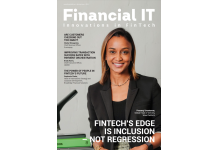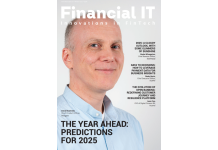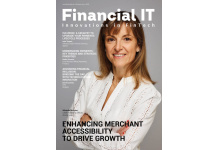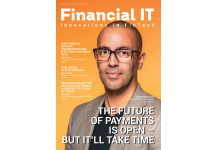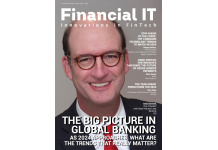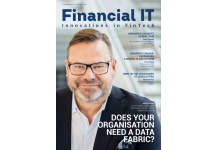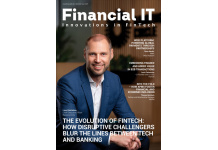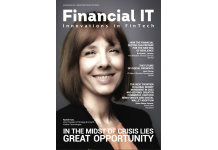Financial IT Summer Edition 2024
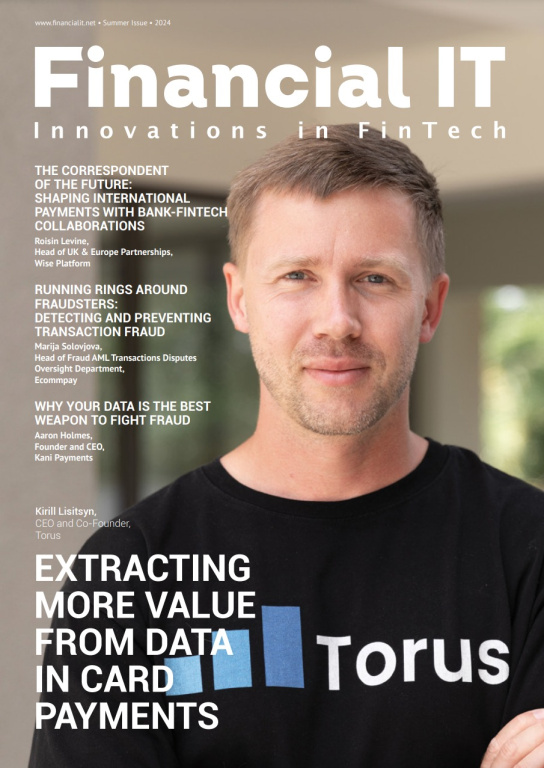
- 03 Jun, 2024 04:00 am
Perpetual motion and glittering prizes
Fintech - where technology meets financial services - is characterised by perpetual motion. For anyone involved in fintech, the biggest change over - say - the last 12 months will be change itself.
When we asked them in May last year, that was the opinion of the organisers of Money20/20 2023. As this year’s conference - which is also taking place in Amsterdam - draws near, we believe that it is appropriate to consider a different but related question: WHY is the motion perpetual?
In social sciences it is easy to find situations where something (such as demand or supply of a product or service) stops moving entirely. These situations also exist in natural science (such as when an earthquake or avalanche ends, and a new equilibrium is reached). In Fintech, change is constant: moreover, it appears to be constant across the entire panorama of Fintech - wherever one looks.
As ever, this edition of Financial IT does not have contributed articles from across the entire panorama. However, our contributors come from a reasonably broad section of the panorama. Together, they provide clues as to why, in Fintech, motion is perpetual. Those clues - in no particular order - include the following:
- The market for embedded finance apps should grow by 500 percent by 2032. [Andaria]
- Thanks to the general rise of the Global South, Local Payment Methods in e-commerce are set to rise from 47% of transactions by value in 2023 to 58% in 2028. The corresponding figures for Account-to-Account (A2A) payments are 7% and 16%. [Boku]
- Global e-commerce should expand by 65% by 2028. [Boku]
- A quarter of people worldwide are still unbanked. [Boku]
- Statista reports that, globally, losses from online payment fraud in 2023 amounted to $48 billion. [ECommpay]
- Artificial Intelligence (AI) facilitates detection of fraud which, in the UK, is costing businesses over £200 billion annually. [Odigo]
- Open Banking payments in the UK in the first six months of 2023 were more than double those of the previous corresponding period. [GoCardless]
- In spite of the sophistication of the global payments industry, settlement problems give rise to major costs [Kami]
- Overpayments by banks and fintechs to the operators of card networks can amount to between 5% and 15% of the payments to the operators [Torus]
- In the United States, the number of workers in the gig economy is growing three times as fast as the full-time workforce. [NCR Voyix]
- According to the Federal Reserve, 83% of businesses and 75% of consumers are already using faster payments. [NCR Voyix]
We live in dark times. However, regardless of the economic stagnation, major conflicts in the Middle East, Ukraine, Sub-Saharan Africa and elsewhere, significant risks of financial crisis and unresolved environmental challenges … the Fintech industry provides hope, and a lot of it. Across the Fintech panorama, it is easy to find markets that are still growing quickly. Those markets will develop regardless of what disasters unfold elsewhere.
Further, the growth of the markets are being driven by the empowerment of individual consumers. People are demanding - and getting - payments services (and much else besides) that are faster, cheaper and better. Many of the people are in comparatively poor countries where the evolution of payments and other financial services will be completely different to the evolution that continues in the developed world.
A better deal for consumers means downwards pressure on prices for service providers. In aggregate, the costs that can still be reduced are enormous. For the companies that can provide other businesses with better ability to control expenses and losses, the opportunities are correspondingly huge.
Expanding markets, empowered consumers and businesses’ reduction of costs are glittering prizes. Not all the ventures that seek those prizes will be successful. However, the pursuit of the prizes will ensure that, in Fintech, change will be constant.
Perpetual motion is here to stay. It will likely be the biggest theme in Money20/20 Europe 2024 in Amsterdam. We wish everyone who is involved a most successful conference.
Andrew Hutchings,
Editor-in-Chief, Financial IT




